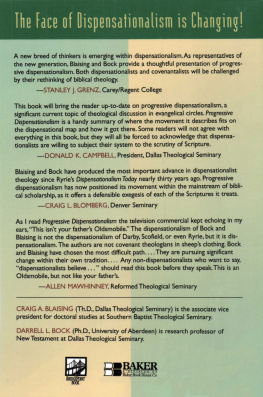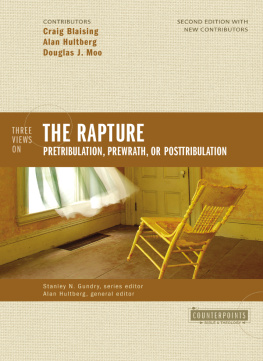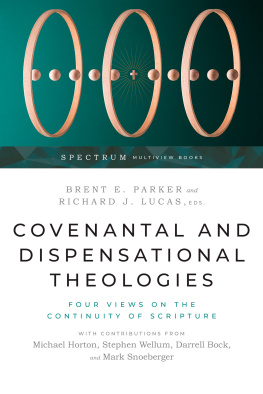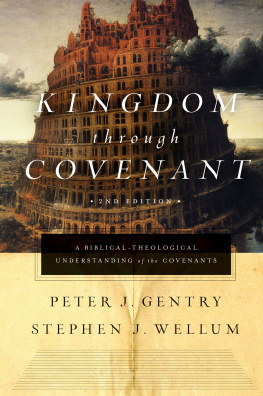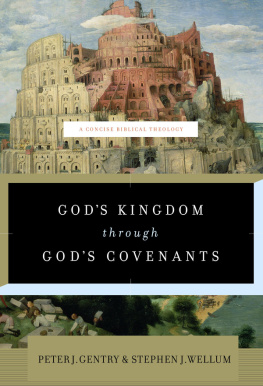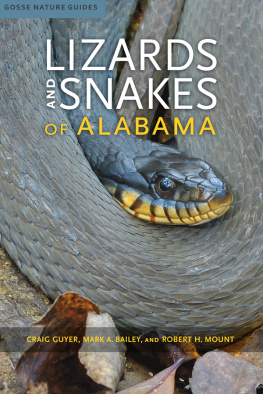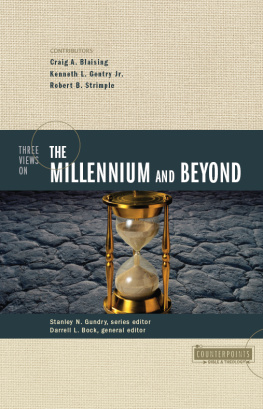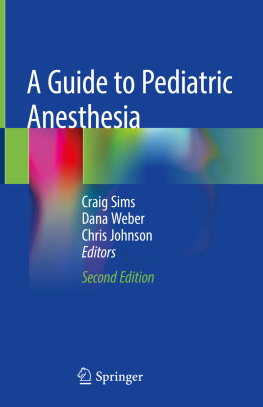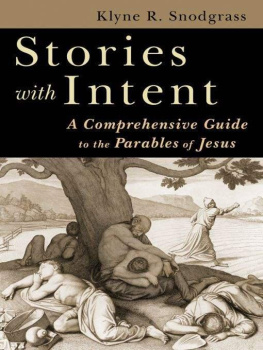Craig A. Blaising - Progressive Dispensationalism
Here you can read online Craig A. Blaising - Progressive Dispensationalism full text of the book (entire story) in english for free. Download pdf and epub, get meaning, cover and reviews about this ebook. year: 2000, publisher: Baker Publishing Group, genre: Religion. Description of the work, (preface) as well as reviews are available. Best literature library LitArk.com created for fans of good reading and offers a wide selection of genres:
Romance novel
Science fiction
Adventure
Detective
Science
History
Home and family
Prose
Art
Politics
Computer
Non-fiction
Religion
Business
Children
Humor
Choose a favorite category and find really read worthwhile books. Enjoy immersion in the world of imagination, feel the emotions of the characters or learn something new for yourself, make an fascinating discovery.
- Book:Progressive Dispensationalism
- Author:
- Publisher:Baker Publishing Group
- Genre:
- Year:2000
- Rating:4 / 5
- Favourites:Add to favourites
- Your mark:
- 80
- 1
- 2
- 3
- 4
- 5
Progressive Dispensationalism: summary, description and annotation
We offer to read an annotation, description, summary or preface (depends on what the author of the book "Progressive Dispensationalism" wrote himself). If you haven't found the necessary information about the book — write in the comments, we will try to find it.
Thoughtful and accessible. An up-to-date, comprehensive overview of the most important issues in dispensationalism, underpinned with accurate scholarship and summarized with clarity.
Progressive Dispensationalism — read online for free the complete book (whole text) full work
Below is the text of the book, divided by pages. System saving the place of the last page read, allows you to conveniently read the book "Progressive Dispensationalism" online for free, without having to search again every time where you left off. Put a bookmark, and you can go to the page where you finished reading at any time.
Font size:
Interval:
Bookmark:

BridgePoint,
an imprint of
Baker Books,
is your connection
for the best in
serious reading
that integrates
the passion of
the heart with
the scholarship
of the mind.

1993 by Craig A. Blaising and Darrell L. Bock
Published by Bridgepoint Books
an imprint of Baker Academic
a division of Baker Publishing Group
P.O. Box 6287, Grand Rapids, MI 49516-6287
www.bakeracademic.com
Ebook edition created 2012
Ebook corrections 11.18.2013
First published by Victor Books, a division of Scripture Press Publications, Inc. Wheaton, Illinois
All rights reserved. No part of this publication may be reproduced, stored in a retrieval system, or transmitted in any form or by any meansfor example, electronic, photocopy, recordingwithout the prior written permission of the publisher. The only exception is brief quotations in printed reviews.
ISBN 978-1-4412-0512-4
Library of Congress Cataloging-in-Publication Data is on file at the Library of Congress, Washington, DC.
Unless otherwise noted, all Scripture quotations are taken from the New American Standard Bible, the Lockman Foundation 1960, 1962, 1968, 1971, 1972, 1973, 1975, 1977; other quotations are from the Holy Bible, New International Version (NIV). Copyright 1973, 1978, 1984 by International Bible Society. Used by permission of Zondervan Publishing House. All rights reserved; the Revised Standard Version of the Bible (RSV), 1946, 1952, 1971, 1973; and the Authorized (King James) Version (KJV). All emphases in Scripture quotations are the authors.
Finallya coherent statement of current dispensational thinking which leaves the zealous mistakes of Scofield and the Allis-Ladd-Walvoord wars far behind. It presents hermeneutics grounded in authorial intent rather than naive literalism, unity as well as diversity in the biblical covenants, Davidic as well as new covenants inaugurated by Jesus, and a kingdom-based framework for understanding progressive dispensationalism. It is a thoughtful presentation of a truly biblical-theological system, a bench mark for future discussions.
Gerry Breshears, Professor of Theology, Western Seminary
This excellent work by Blaising and Bock presents a strong case for the significant refinements within progressive dispensationalism. It also provides a splendid sequel to Dispensationalism, Israel and the Church, edited by the same authors. I highly recommend it.
Kenneth J. Barker, Executive Director, NIV Translation Center
With their latest work... Blaising and Bock have produced a tour de force, a clear and unambiguous statement of the thought of an increasingly large segment of contemporary dispensationalism. Regardless of whether Christians of other traditions (or even fellow dispensationalists) accept their premises and theological conclusions in every respect, there can no longer be any doubt as to what progressive dispensationalism means and how two of its leading proponents argue its case.
Eugene H. Merrill, Professor of Old Testament Studies, Dallas Theological Studies
Anyone who learned dispensationalism in the 50s or 60s and thinks that it has not changed should read a book like this. Blaising and Bock give a fine overview of what is called progressive dispensationalism....
Paul D. Feinberg, Professor of Biblical and Systematic Theology, Trinity Evangelical Divinity School
This is the most scholarly and insightful work yet in print on dispensational theology. Hopefully, those who embrace this system.... will themselves be able to change, grow, and progress in their thinking about dispensationalism.
James C. McHann, President, William Tyndale College
Blaising and Bock have thoughtfully and biblically given the Christian community a long overdue work. Their presentation of Christs rule over Gods kingdom in this age and the age to come, plus their skillful unfolding of the connection between covenants make it a must in prophetic reading.
James O. Rose, Jr., Senior Pastor, Calvary Baptist Church (New York City)
Contents
by Craig A. Blaising
by Darrell L. Bock
by Craig A. Blaising
by Craig A. Blaising
Preface to the Paperback Edition
Seven years have passed since the initial publication of Progressive Dispensationalism, and a new millennium is beginning! The convergence of these two events is purely coincidental, but the coincidence furnishes the occasion to ask what contribution this book makes to advance the churchs understanding of the plan of God and what purpose there might be for the books continued publication. Over the past seven years, reader interest has remained steady. If simply for that reason alone, the authors are grateful that Baker Books has chosen to make it available in a paperback edition.
We have found that many use the work as a textbook, focusing especially on part 3. Of the books four parts (three parts in the previous printing), part 3, the longest section, offers an exposition of the biblical covenants and the kingdom of God in relation to the Pauline structure of oikonomia (dispensation). However, interest in the other essays also remains high. Readers have commented that each part of the book is valuable as much for its unique contribution to an individual subject as to the overall development of the book. Readers interested in hermeneutical method continue to regard part 2 as a readable essay relating the key issues in canonical hermeneutics. Others are interested in part 1 for its helpful definition of dispensationalism and its overview of the movements history and development. In this printing, chapter 9 has been designated as part 4, Theology and Ministry, in order to call attention to its content, which goes beyond the purpose of the chapters in part 3. When taken together, the different parts of the book still provide a complete survey of the issues and concerns that characterize what has become known as progressive dispensationalism.
Books and articles have been written responding to Progressive Dispensationalism. Regrettably, many of these have not helped to advance a true understanding of the continuities and differences between progressive and traditional dispensationalists. A notable exception, however, is the recently published Three Central Issues in Contemporary Dispensationalism: A Comparison of Traditional and Progressive Views, edited by Herbert W. Bateman IV. The reader who wishes to pursue the dispensational discussion of issues raised in Progressive Dispensationalism would do well to consult that work. In addition, one should note the following articles written by Darrell Bock that further the discussion beyond what has been written here: The Son of David and the Saints Task: The Hermeneutics of Initial Fulfillment, Bibliotheca Sacra 150 (1993): 44057; Current Messianic Activity and Old Testament Promise: Dispensationalism, Hermeneutics, and New Testament Fulfillment, Trinity Journal 15 n.s. (1994): 5587; and Why I Am a Dispensationalist with a Small d, Journal of the Evangelical Theological Society 41 (1998): 38396.
Darrell Bock and I wish to express our appreciation to the publishers for making this book available and to you the reader for choosing it. We pray that it will bring honor to the Lord Jesus Christ and serve in some way to advance the knowledge of his word.
Craig A. Blaising
Part One: History
Chapter One
The Extent and Varieties of Dispensationalism
D ispensationalism may not be a household term, but it designates one of the most widespread and influential traditions in evangelical theology today. If you are an evangelical Christian, it is most likely that you know of some who call themselves dispensationalists. And it is just as likely that you have certain beliefs and interpretations of Scripture that have been shaped in some way by dispensationalism.
Next pageFont size:
Interval:
Bookmark:
Similar books «Progressive Dispensationalism»
Look at similar books to Progressive Dispensationalism. We have selected literature similar in name and meaning in the hope of providing readers with more options to find new, interesting, not yet read works.
Discussion, reviews of the book Progressive Dispensationalism and just readers' own opinions. Leave your comments, write what you think about the work, its meaning or the main characters. Specify what exactly you liked and what you didn't like, and why you think so.

